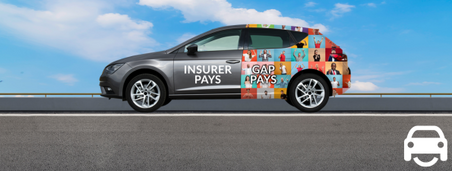UK Petrol and Diesel Car Ban Delayed to 2035

So now the dust has settled, what exactly was the point of pushing back the ban on the sale of new fossil-fuel vehicles from 2030 to 2035?
The delay, which was announced on 21 September by Prime Minister Rishi Sunak, was billed as a 'pragmatic and proportionate' response to soaring inflation, one that would avoid imposing 'unacceptable costs' linked to reducing emissions on British families while aligning the UK's deadline with the EU's ban, also 2035.
However, Westminster observers said that it was motivated also by the Conservative party's desire simply to establish clear differences between it and opposition parties, most of whom have pledged to restore the 2030 ban. To be clear, it will still be possible to buy used petrol and diesel cars after the 2035 ban on sales of new cars takes effect.
How did it go down?
Not well with opposition politicians as well as a few Conservative ones, large parts of the automotive sector and energy industries and many commentators who all condemned the decision as destructive, disruptive and a betrayal of the UK's pledge to reach net-zero by 2050. However, car makers including Jaguar Land Rover, Toyota and Stellantis were largely in favour, JLR calling the decision 'pragmatic'. Ford said its plans to go all-electric by 2030 were 'unwavering' while Nissan has said it will 'press ahead' with plans to sell only electric vehicles by 2030.
Will the decision slow the shift to electric cars?
In the immediate aftermath of the government's announcement, little reference was made to the much-trailed zero-emission mandate (ZEV), whose final details were at last revealed precisely one week after the 2030 pushback announcement. Due to come into force in January 2024, the mandate will require more than a fifth of new cars (22%) and 10% of vans sold by manufacturers to be electric.
The proportions will increase each year such that by 2030, 80% of new cars and 70% of new vans must be electric and by 2035, 100%. Manufacturers who fail to hit the targets will be fined for each vehicle that doesn't comply, to the tune of £15,000 per car and £9000 per van, although they will be able to trade credits with each other to soften the blow.
How was the ZEV received?
The SMMT, which represents car makers, welcomed the scheme describing it as the 'single most important measure to deliver net zero.' Transport & Environment, a thinktank, said it will 'pretty much end sales of new petrol and diesel cars by 2030.' Ford said the mandate will by a 'strong investment signal to infrastructure providers to accelerate installation of new charge points.'
So the furore around the 2030 delay was a storm in a teacup?
Not exactly. The automotive industry was geared to delivering the cars and the infrastructure required to hit the 2030 deadline but some sections, including vehicle charging companies, said the delay would cause uncertainty among investors as well as car buyers. Charlie Jardine, CEO of EO Charging said, "A clear target has motivated and enabled businesses to raise investment and develop and build new products that are critical to drive net zero. Uncertainty and change in policy will only serve to slow or even reverse this progress."
However, others said that regardless of deadlines, industry is already well advanced in transitioning to an EV economy and that the announcement would make no difference.
Should car buyers be concerned about the ban's delay?
Fears were expressed that the delay would make car buyers think twice about buying a new EV, in turn causing fewer cheaper, used ones to be available. Simon Williams, head of policy at the RAC, said, "We hope manufacturers will continue producing EVs in ever increasing numbers as this is ultimately what's needed to help bring prices down for new and secondhand cars."
However, he was speaking before the details of the ZEV mandate – which will ensure increasing numbers of new EVs are sold, thereby fuelling price competition and guaranteeing a supply of used ones – were confirmed. Meanwhile, the low, 2% benefit-in-kind charge on EVs will ensure the vehicles remain the first choice of company car drivers and those leasing an EV on salary sacrifice.
So now the dust is settling, how is the UK's EV landscape looking?
There are around 900,000 EVs on UK roads, equivalent to 2.5% of the total car population. This year registrations are on target to reach 18% of the new car market but from last January to July they grew by only 31%, which is far behind the 61% reported across the EU.
Part of the problem is that most EVs are bought by companies, with private buyers accounting for just 25% of sales, a proportion that's actually falling. The reasons for this include the much higher price of new EVs, concerns about public charger quality and availability and the rising price of public charging, which risks undermining the cars' running costs advantage over petrol and diesel models.
The good news is that the charging network, although only 46,000 chargers strong, is growing (up 38% last year), while this September the government launched a £381 million funding scheme to deliver thousands more. An increasing number of chargers are the rapid kind that can quickly replenish a battery.
Again this month, a new rapid and super-fast hub that can recharge 180 cars simultaneously, opened in Birmingham. Especially at rapid chargers, electricity prices are high but for those people who can charge at home, smart chargers that can take advantage of fluctuating energy prices make EVs much cheaper to run.
Meanwhile, the prices of used EVs have fallen dramatically and although they're now stabilising and, for some models, even rising, the cars now look more competitive against used fossil-fuel alternatives.




